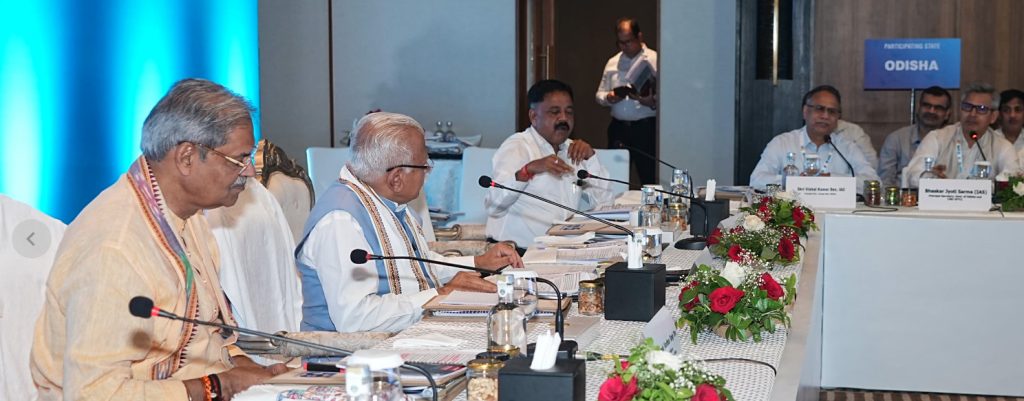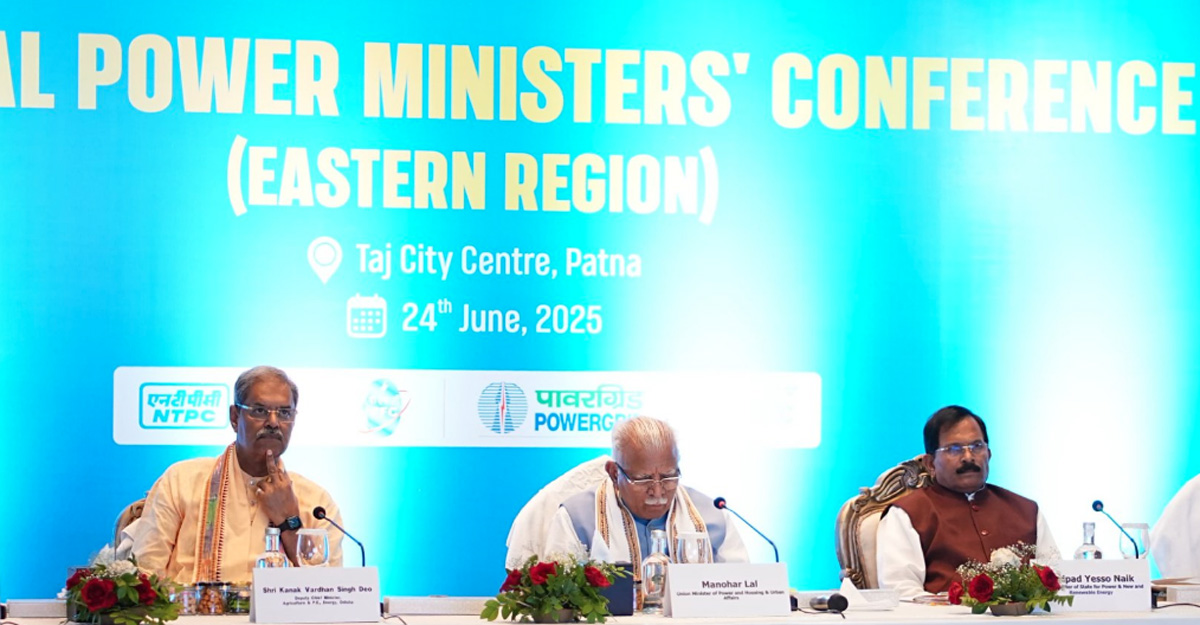Bhubaneswar: Odisha is poised to become a leading model in energy transformation, as highlighted by Deputy Chief Minister and Minister of Energy, Shri Kanak Vardhan Singh Deo, at the Regional Power Ministers Conference of Eastern Region States and UTs today in Patna.
The conference, chaired by Union Power Minister Shri Manoharlal, provided a platform for Deputy Chief Minister Shri Singh Deo to present an ambitious overview of Odisha’s power sector and seek crucial support from the Government of India.
DCM Shri Singh Deo emphasized Odisha’s unwavering commitment to developing a resilient, green, and future-ready power infrastructure. “Through strategic investments in renewables, robust transmission planning, cybersecurity, and financial reforms, we aim to be a model state in energy transformation,” he reiterated.
Odisha has already achieved a significant milestone, successfully transitioning from a power-sufficient to a “power-empowered” state, consistently meeting its peak power demand of 6,242 MW. Looking ahead, the state has set an aggressive target: by 2036, 61% of Odisha’s power portfolio is projected to be sourced from non-fossil sources.
This will be achieved through a planned addition of 11,294 MW by 2036, encompassing a diverse mix of solar, wind, hydro, Distributed Renewable Energy (DRE), and pumped storage projects, with 3,904 MW already under contract.
Strengthening its grid resilience, Odisha has implemented Islanding Schemes to ensure uninterrupted power supply even during grid failures. The state’s transmission network is set for substantial expansion, with plans to establish 225 substations and 20,939 circuit kilometers of transmission lines by 2030, boasting a total transformation capacity of 45,369 MVA.
To facilitate the integration of renewable energy, dedicated evacuation corridors are being developed, including key projects like Hirakud–Kolabira–Duburi, Indravati–Theruvali–Gopalpur, and the Theruvali-Jayanagar 400kV LILO at Jayanagar pooling Station.

Addressing the critical aspect of financial health in the power distribution sector, Shri Singh Deo proudly announced a significant reduction in AT&C losses from 29.5% in FY21 to 16.5% in FY25. This remarkable improvement has led to three out of four of Odisha’s DISCOMs receiving A+ ratings in both the 12th and 13th Annual Rankings of Power Distribution Utilities, placing them among the top 10 performing utilities in India.
To further accelerate its energy transformation journey, Deputy Chief Minister Shri Singh Deo sought the proactive support of the Government of India on several key initiatives:
- Sanction of funds amounting to Rs. 6284 Cr. under the revamped distribution sector scheme.
- Central financial assistance for disaster-resilient power infrastructure.
- Allocation of 800 MW power from the NLC Talabira Phase II project to Odisha.
- Sanction of central financial assistance under Green Energy Transmission Corridor Projects in Odisha.
- Viability Gap Funding (VGF) for Pumped Storage Projects (PSP) in line with Battery Energy Storage System (BESS), floating solar projects, and offshore wind projects in Odisha, along with support for a study of tidal potential on the Odisha coastline.
- Exemption of “state Compensation Cess” of Rs. 400/ton of coal dispatch from “Manoharpur Captive Coal Mine of Odisha Coal and Power Ltd” to its linked end-use plant at OPGC.
- Relaxation of ash utilization compliance target by MoEF & CC and allotment of MCL mine voids for backfilling with fly-ash.
- Relaxation of condition for obtaining NoC under FRA, 2006 for forest clearance in transmission line projects.
The conference was also attended by Principal Secretary, Energy & E&IT, Shri Vishal Dev, and CMD OPTCL, Shri Bhaskar Jyoti Sharma, underscoring the collective commitment of Odisha’s energy sector to achieving its ambitious goals.
Odisha’s proactive approach and strategic vision, as articulated by Deputy Chief Minister Shri Singh Deo, present a compelling case for its role as a torchbearer in India’s journey towards a sustainable and empowered energy future.


